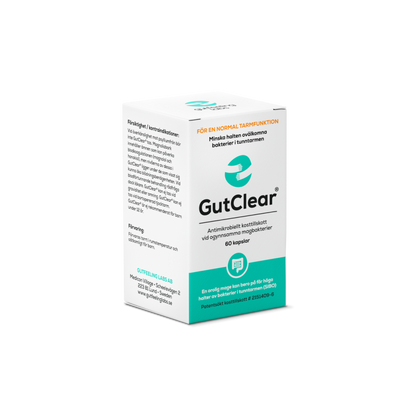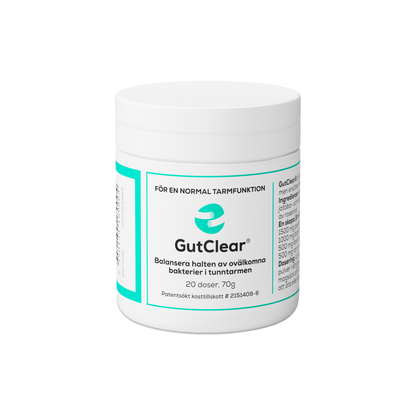Your gut flora consists of around 100 trillion gut bacteria and the majority of these should be located in the large intestine. One of the tasks of the large intestine is to break down those dietary fibers that our own cells cannot digest. In this process, fibers are converted into health-promoting substances such as short chain fatty acids and B and K vitamins.
The task of the small intestine is to absorb the nutrients you ingest such as amino acids, fatty acids, carbohydrates, vitamins and minerals.
The large intestine is adapted to handle the huge amounts of bacteria that are needed in order to digest the dietary fibers that you ingest. When the dietary fibers are digested, residual products called bacterial toxins are formed. The colon has two thick mucus layers to keep these bacteria and toxins away from the intestinal wall.
In the small intestine, there should normally be very few gut bacteria, because this part of the gut does not have the strong protective mucus layer that the large intestine has.
If you have large amounts of bacteria in the small intestine, the digestion of dietary fiber will take place there instead, and since the small intestine only has a thin layer of mucus, bacterial toxins can get through the intestinal wall, where theses can cause damage to the cells of the small intestine, irritate the immune system found in the wall of the small intestine and leak into the bloodstream. This can result in inflammation both in the gut and in the rest of the body and contribute to the development of chronic diseases and inflammatory conditions in the skin, muscles and joints.
In addition to these negative effects, the unwelcome bacteria in the small intestine can "steal" amino acids, vitamins and minerals that should otherwise benefit our body.


